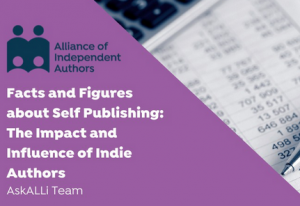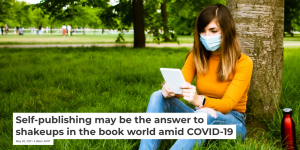Research Project: Self-Publishing Across the Literary Field
 Emmett Stinson and Jodi McAlister have received funding from Deakin Motion Lab to explore Self Publishing Across the Literary Field, more details here.
Emmett Stinson and Jodi McAlister have received funding from Deakin Motion Lab to explore Self Publishing Across the Literary Field, more details here.
Check out this 2020 report Facts and Figures about self-publishing from the Alliance of Independent Authors #AskALLi considering the impact of indie authors on the wider publishing industry.
It’s mind-boggling that just 15 years ago, there were no iPhones, no Kindles and barely an inkling of the impending self-publishing revolution. In a few short years, indie authors have irrevocably changed the industry: now accounting for 30-34% of all e-book sales in the largest English-language markets, depending on which source you read (and none of them tell the full story), and making real inroads into the audiobook market too, and into print, through print-on-demand.
The WLC project analyses two significant but still underexamined ‘ecosystems’ of self-published fiction: romance fiction and experimental literature.
 The Conversation article on self-publishing by (PhD Candidate, Communications and Culture, York University, Canada), in May 2021 indicates a large publishing takeover threatening content diversity: Penguin Random House announced it would be taking over Simon & Schuster.
The Conversation article on self-publishing by (PhD Candidate, Communications and Culture, York University, Canada), in May 2021 indicates a large publishing takeover threatening content diversity: Penguin Random House announced it would be taking over Simon & Schuster.
Get news that’s free, independent and based on evidence.
… Even before the pandemic, changes were afoot in publishing. Some authors had criticized the fact that it was difficult for entry-level writers to publish and make a living because a small number of cult-status authors dominate the market. BIPOC and queer authors have also been under-represented in traditional publishing deals, as have books that push the boundaries of mainstream genres.